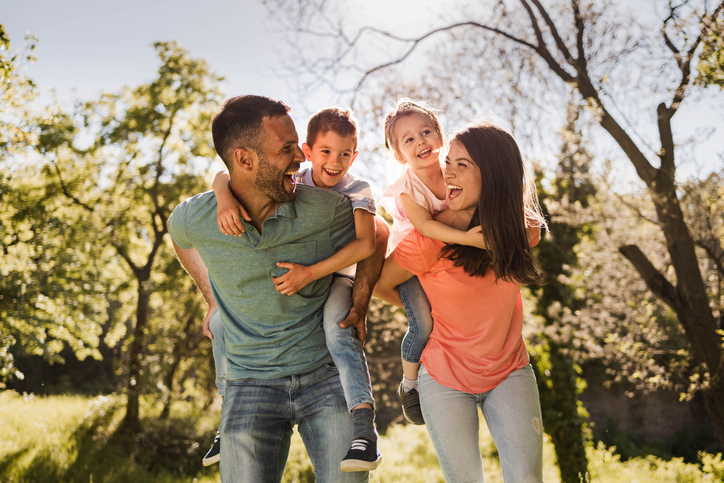Maintaining Mental Well-being: Exercise and Access to Outdoor Spaces
Recent research is supporting what many people reported during the stressful times of the pandemic: physical activity/exercise and access to parks and green spaces have a positive effect on mental health.
One study looked at changes in the level of exercise and its impact on symptoms of depression, anxiety and sleep. About one-third of participants reported a reduction in their exercise extent, just under a third maintained their exercise level, and just over a third increased their exercise level. The researchers suggest the increase may have been possible in part because of people working from home with more flexibility in their schedules. The study found a significant positive association between reduced exercise levels and increased mental health concerns, including symptoms of depression, anxiety, and sleep disorders. People who maintained their exercise despite the challenges and limitations of the early pandemic were more resistant to the negative mental health impacts of the pandemic.

The study highlights the importance of public health interventions that target exercise behavior, especially understanding the benefits and having the motivation to maintain exercise.
Other research points to the links between exercise and a sense of control over actions and consequences and a sense of hopefulness. Those feelings contribute to more positive mental health and help to reinforce and maintain continued participation in physical activity and exercise.
Studies also showed that access to parks, the outdoors and green spaces helped to support mental wellbeing during the pandemic. In one study, researchers evaluated the associations between the number of neighborhood parks and depression, anxiety, and loneliness among older adults and conducted a qualitative analysis of participants’ outdoor experiences. They found that among urban residents, a greater number of neighborhood parks was associated with lower levels of depression and anxiety.
Qualitative analysis identified a variety of types of engagement in greenspaces that boosted physical, mental, and social well-being. Outdoor activity helped maintain physical well-being. Walking was the most common activity mentioned; other frequently mentioned activities included biking, running, and gardening. Contact with nature helped alleviate stress and promote positive emotions. Outdoor activity was also considered by many as an opportunity to connect with others. Participants often expressed appreciation for the outdoor access they had, such as their yard, a deck, nearby trails or parks, etc.
Another study of parents of children aged 6 to 17 found that during the pandemic, greater access to parks was associated with more positive mental health for them and their parents. This held true for both younger children aged 6-10 and for teens aged 11-17.
Collectively the research points to the value of physical activity and access to outdoor and green spaces to help support resilience and maintain wellbeing in the face of stressful situations.
References
- Rösel, I., Bauer, L. L., Seiffer, B., Deinhart, C., Atrott, B., Sudeck, G., Hautzinger, M., & Wolf, S. (2022). The effect of exercise and affect regulation skills on mental health during the COVID-19 pandemic: A cross-sectional survey. Psychiatry research, 312, 114559. https://doi.org/10.1016/j.psychres.2022.114559
- Yao Y., Chen J., Dong D., Feng Y., Qiao Z. (2022). The Relationship between Exercise and Mental Health Outcomes during the COVID-19 Pandemic: From the Perspective of Hope. International Journal of Environmental Research and Public Health, 19(7):4090. https://doi.org/10.3390/ijerph19074090
- Hazlehurst, M. F., Muqueeth, S., Wolf, K. L., Simmons, C., Kroshus, E., & Tandon, P. S. (2022). Park access and mental health among parents and children during the COVID-19 pandemic. BMC public health, 22(1), 800. https://doi.org/10.1186/s12889-022-13148-2
- Bustamante, G., Guzman, V., Kobayashi, L. C., & Finlay, J. (2022). Mental health and well-being in times of COVID-19: A mixed-methods study of the role of neighborhood parks, outdoor spaces, and nature among US older adults. Health & Place, 76, 102813. https://doi.org/10.1016/j.healthplace.2022.102813
